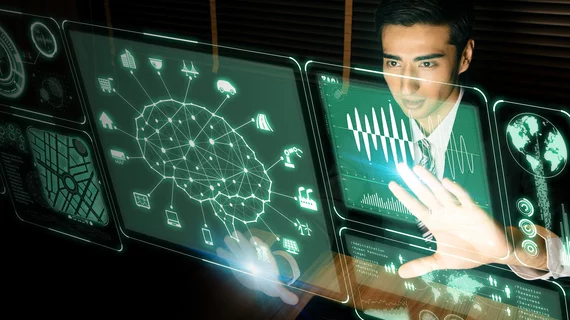Experts introduce AI-RADS to help bolster radiologists’ proficiency in artificial intelligence
Artificial intelligence is poised to have a monumental impact on the future of medicine and imaging in particular. And yet, many medical schools pay little mind to this burgeoning piece of the healthcare delivery system.
Wanting to close the knowledge gap, experts with Dartmouth College have developed a novel curriculum to bolster physicians’ know-how in this space. AI-RADs, as it’s called, has shown early promise, with residents rating it as a 9.8 out of 10 and significant gains in comprehension when reading AI articles after lectures, experts reported Friday in Academic Radiology.
“AI-RADS was well-received amongst trainees at our institution,” Alexander Lindqwister, with the New Hampshire-based college’s Geisel School of Medicine, and colleagues wrote Oct. 16. “From our metrics of quality, trainees overwhelmingly feel that the content depth of the AI-RADS lecture series is ideal, and the examples used are helpful vehicles to understand key concepts in artificial intelligence.”
Lindqwister et. al built their course around a sequence of foundational algorithms, presented as logical extensions of each other and based around familiar examples, such as movie recommendations. They also incorporated secondary lessons on topics such as pixel mathematics, since most residents have little to no computational background. They further built out the program with a journal club, exploring the algorithm discussed in the most recent lecture, along with study guides that helped cut through “intimidating technical descriptions.”
The team then administered questionnaires before and after each lecture to gauge their effectiveness, along with additional surveys at each journal club. Trainees “overwhelmingly” felt that the content depth was just right, with the examples offered proving useful in understanding key AI concepts. With success thus far, Lindqwister and colleagues are now working to establish an online infrastructure to house the program, along with publishing all materials and sharing the educational series with those interested.
“As artificial intelligence continues to reshape the world of medicine, it will become imperative that physicians are familiar with fundamental algorithms and techniques in artificial intelligence,” the team wrote. “By having an intuitive foundation of machine learning based around fundamental algorithms, learners will likely be better equipped to understand strengths and weaknesses of various techniques and be empowered to make more informed decisions.”
Read more about AI-RADS in the Academic Radiology here.

